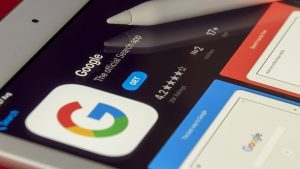![]()
iPhone 15 and iPhone 15 Plus [left], Google Pixel 9 [right]
![]()
The Google Pixel 9 was launched on August 19, about a month before Apple’s iPhone 16 is expected to debut. This is how the Pixel 9 compares against the currently available flagships, the iPhone 15 and iPhone 15 Plus.
The August 13 launch of a new Pixel generation by Google is timed to try and disrupt the usual cycle of iPhone upgrades. Arriving weeks before Apple’s newest smartphone family, the Pixel 9 is trying to tempt potential iPhone upgraders over to Android.
This time, Google has more at play, with a greater push to incorporate AI into its smartphone ahead of the public release of the rival Apple Intelligence.
We have already compared the Pixel 9 Pro line against Apple’s Pro devices. Now, it’s the turn of the non-Pro Pixel 9 against the iPhone 15 and iPhone 15 Plus.
iPhone 15 vs Google Pixel 9 – Specifications
| Specifications | iPhone 15, iPhone 15 Plus | Google Pixel 9 |
|---|---|---|
| Price (starting) | $799 (15), $899 (Plus) | $799 |
| Dimensions (inches) | 5.81 x 2.82 x 0.31 (15), 6.33 x 3.06 x 0.31 (Plus) | 6 x 2.8 x 0.3 |
| Weight (ounces) | 6.02 (15), 7.09 (Plus) | 7 |
| Processor | A16 Bionic 5-core GPU | Google Tensor G4, Titan M2 security coprocessor |
| Storage | 128GB, 256GB, 512GB | 128GB, 256GB |
| Display type | 6.1-inch Super Retina XDR (15), 6.7-inch Super Retina XDR (Plus) | 6.3-inch Actua display |
| Resolution | 2,556 x 1,179 at 460ppi (15), 2,796 x 1,290 at 460ppi (Plus) | 2,424 x 1,080 at 422ppi |
| Biometrics | Face ID | Fingerprint reader |
| Connectivity | 5G (Sub-6GHz and mmWave) Gigabit-class LTE Wi-Fi 6 Bluetooth 5.3 Second-gen Ultra Wideband Emergency SOS via Satellite Roadside Assistance via Satellite USB-C NFC | 5G (Sub-6GHz and mmWave) LTE Wi-Fi 7 Bluetooth 5.3 USB-C NFC |
| Rear Cameras | 12MP Ultra Wide 48MP Main | 48MP Quad PD Ultra Wide, 50MP Octa PD Wide |
| Video | 4K 60fps, 4K 60fps HDR with Dolby Vision, 1080p 240fps Slo-Mo, Sensor-shift optical image stabilization, Action Mode | 4K 60fps, 240fps Slo-mo, 10-bit HDR. Optical Image Stabilization Cinematic Pan stabilization, |
| Front Camera | 12MP TrueDepth Autofocus | 10.5MP Dual PD Autofocus |
| Audio | Stereo speakers, Microphones | Stereo speakers, 3 microphones |
| Battery Size | Up to 20 hours video playback (15), Up to 26 hours video playback (Plus) | 24+ hours typical usage |
| Colors | Black, Blue, Green, Yellow, Pink | Peony, Wintergreen, Porcelain, Obsidia |
iPhone 15 vs Google Pixel 9 – Physical Dimensions
An aluminum and glass sandwich design, the iPhone 15 and iPhone 15 Plus are built similarly, but with different sizes.
The Plus model is the biggest overall, measuring 6.33 inches long and 3.06 inches wide. The standard iPhone is 5.81 inches long and 2.82 inches wide.
Google’s Pixel 9 is a longer and narrower phone overall. At 6 inches long, it’s between the two iPhones, but its 2.8-inch width is a hair narrower than the smaller iPhone model.
![]()
The side profile of the Google Pixel 9
While it uses the same glass and aluminum body concept as the iPhone, the Pixel does manage to be a tiny bit thinner at 0.3 inches versus 0.31 for the iPhones. That said, it is unclear if the Pixel’s thickness is rounded down, due to how Google restricts its measurements to one decimal place instead of two.
Though it is sized to be in the middle of the two iPhones, the Pixel does lean towards the Plus model when it comes to weight. The iPhone 15 and Plus are 6.02 ounces and 7.09 ounces respectively, while the Pixel 9 is 7 ounces.
iPhone 15 vs Google Pixel 9 – Display
Apple uses a Super Retina XDR display in its iPhones, measuring 6.1 inches and 6.7 inches respectively. These OLED screens have a Dynamic Island cutout at the top for the TrueDepth camera array, complete with Face ID recognition.
They also include Wide Color (P3) support, True Tone, HDR support, and an oleophobic coating. While it doesn’t have the Pro model’s ProMotion facility, it does have a refresh rate of 60Hz.
The Pixel has a 6.3-inch Actua display, which again is an OLED panel. Having HDR support and a full 24-bit depth for 16 million colors, it also boasts Smooth Display, which can operate between 60Hz and 120Hz.
![]()
The 6.3-inch Actua display on the Google Pixel 9 isn’t as pixel-dense as the iPhone 15
In terms of resolution, iPhone takes the lead here, with the iPhone 16 at 2,556 by 1,179 pixels and the Plus at 2,796 by 1,290 pixels. The Pixel 9 manages just 2,424 by 1,080 pixels for its screen.
That gives the iPhones a pixel density of 460 pixels per inch apiece, while the Pixel 9 gets to 422ppi. You’re getting a more pixel-dense display with the iPhones.
The iPhones are certainly bright at 1,000 nits for typical brightness, 1,600 nits for peak HDR brightness, and up to 2,000 nits possible when used outdoors. However, the Pixel 9 boasts up to 1,800 nits for HDR content and 2,700 nits for outdoor brightness.
While brighter, the Pixel 9 is comparable to the iPhones when it comes to contrast ratio, as they all work at up to 2 million to one.
iPhone 15 vs Google Pixel 9 – Cameras
The iPhones have a pair of cameras on the back, with a 48-megapixel Main sensor equipped with sensor-shift optical image stabilization. There’s also the 12MP Ultra Wide camera as well.
However, Apple does call upon the 48-megapixel sensor to fake a third camera level. A 12MP 2x Telephoto “camera” is included, but really it’s a tight crop of the larger sensor’s image, albeit one that is still technically an optical “zoom.”
You still get a 10x digital zoom level overall, in part thanks to the sensor size.
The Google Pixel has a 50MP Octa PD wide camera on the rear, along with a 48MP Quad PD ultrawide with autofocus. The back also benefits from a single-zone LDAF (laser detect autofocus) sensor, which is a feature closer to the iPhone 15 Pro’s capabilities.
Around the front, Apple has the TrueDepth camera array, which has a 12MP camera with autofocus. You don’t get the 3D depth mapping on the Pixel 9, nor the resolution, as it has a 10.5MP selfie camera with autofocus.
![]()
The camera bar of the Google Pixel 9
Both lines have computational photography benefits, such as Portrait mode, low light photography, and various elements to improve pictures.
Google does go further thanks to its AI smarts, including photo unblurring and the ability to remove unwanted elements from an image. Apple Intelligence offers some editing options in a similar vein, but it’s not coming to the iPhone 15.
On the video front, there’s a fair similarity between the models. Both can handle 4K video at 60fps, HDR, 240fps slo-mo, and have a variety of stabilization and filming modes.
iPhone 15 vs Google Pixel 9 – Processing and the promise of AI
Inside the iPhone 15 is the A16 Bionic, an Apple-designed chip with a 6-core CPU and a five-core GPU. The CPU cores consist of two performance cores and four efficiency cores.
It also has the 16-core Neural Engine, which is used to help with certain tasks such as computational photography features and others aided by machine learning. There’s also 6GB of memory in use by the iPhones.
The Google Tensor G4 is the brain of the Pixel 9. It’s made up of a 1-3-4 core configuration, consisting of a single powerful core accompanied by three mid-size cores and four efficiency cores.
Oddly, this is a marginally lower core count than the G3, but it does have higher clock speeds.
Google also includes the Titan M2 security co-processor and 12GB of memory, double that of the iPhones.
We can’t directly compare the chips due to a lack of Pixel 9 benchmarks, but we can be sure that there will be a different capacity for AI.
Google says it will be offering all of its inbound AI capabilities across the curret-gen Pixel range. However, Apple Intelligence is being limited to only the iPhone 15 Pro and Pro Max, as well as future iPhone releases.
Yes, you will be able to experience more AI benefits on the Pixel 9 over the iPhone 15. Things will be more level for the iPhone 16.
iPhone 15 vs Google Pixel 9 – Connectivity, power, and other features
Both iPhone and Pixel support full-fat 5G, covering both Sub-6Ghz and mmWave connections.
On local connectivity, there’s Wi-Fi 7 in the Pixel to the iPhone’s Wi-Fi 6, but both do have Bluetooth 5.3. The iPhone benefits from Ultra Wideband support which the Pixel doesn’t, as well as features like Emergency SOS via Satellite and Roadside Assistance via Satellite.
USB-C is the defacto physical connection for both models. Wireless charging is also available, including Qi on both and MagSafe on the iPhone.
![]()
There’s USB-C in the base of the Google Pixel 9, and wireless charging in the back.
For battery life, the iPhone 15 is said to offer up to 20 hours of video playback, rising to 26 hours on the Plus. Google says its smartphone can handle over 24 hours of typical usage.
Fast charging is available on each, with Google claiming a 55% charge is possible in 30 minutes using a 45W USB-C charger. In Apple’s case, it offers a 50% charge in 30 minutes using a 20W charger or higher.
For biometric security, Apple sticks to Face ID, while Google opts for fingerprint recognition.
iPhone 15 vs Google Pixel 9 – Storage, color, and price
Available in Black, Blue, Green, Yellow, or Pink, the iPhone 15 and Plus are offered in three capacities: 128GB, 256GB, and 512GB.
The Pixel 9 is available in a choice of Peony, Wintergreen, Porcelain, and Obsidian. The capacity choice is a bit narrower, as you could choose either 128GB or 256GB.
For pricing, the iPhone 15 starts from $799, rising to $1,099. The Plus model goes from $899 to $1,199.
The Pixel 9 is $799 for the 128GB capacity, and $899 for the 256GB, in line with the iPhone 15.
iPhone 15 vs Google Pixel 9 – Which to buy
It’s fair to say that Google has created a pretty decent smartphone in the Pixel 9. On paper, it has features that are certainly in the same ballpark as the iPhone 15.
Where the Pixel 9 takes a decisive lead is in Google’s push to include more AI smarts in it.
Google spent a considerable amount of time at the product launch on all of the imaging, search, and other features powered by its Gemini AI tool, as well as other similar elements.
These are all things in an area where Apple Intelligence can improve the lives of iPhone users. Except it won’t help the iPhone 15 because Apple says only the iPhone 15 Pro models will support it, and the non-Pro iPhone 15 won’t.
This does give Google a considerable advantage, but it’s a short-lived one.
The world is expecting the iPhone 16 to come out in September, one which will inherit most of the performance elements of the iPhone 15 Pro. That means the iPhone 16 will be capable of using Apple Intelligence.
To answer the question truthfully, you shouldn’t buy either smartphone now, and to instead wait for the iPhone 16 before making that decision.
Where to buy the Google Pixel 9 and iPhone 15
The Google Pixel 9 is available to order now at Amazon and Best Buy, with an MSRP of $799.
If you prefer the iPhone 15 or iPhone 15 Plus, wireless carriers are currently incentivizing the devices with offers up to $830 off. The best iPhone deals are at your fingertips in our dedicated roundup, but you can also jump straight to the individual carriers below.



